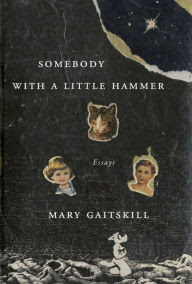Robert K. Wittman
 Robert K. Wittman is the co-author, with David Kinney, of The Devil's Diary: Alfred Rosenberg and the Stolen Secrets of the Third Reich. From Wittman's Q&A with Deborah Kalb:
Robert K. Wittman is the co-author, with David Kinney, of The Devil's Diary: Alfred Rosenberg and the Stolen Secrets of the Third Reich. From Wittman's Q&A with Deborah Kalb:
Q: You were involved in the efforts to retrieve Nazi official Alfred Rosenberg's missing diary. How did you and David Kinney end up writing a book about Rosenberg and the diary?--Marshal Zeringue
A: After we did the recovery in 2013, the diary was so important, and had never been transcribed or translated—it was in the files in Nuremberg during the trial, but the prosecutors didn’t really use it in the trial.
The diary was to be sent back to the National Archives, but…Robert Kempner [a German-born lawyer who worked on the trial] acquired it—he kept that and 8.000 pounds worth of documents that he did not turn over. He had it shipped to his home in Pennsylvania…
[Once it was recovered,] we wanted to do something to educate the general public. There is a historians’ group that studies World War II, and who are very familiar with it, but that’s probably one percent of the population.
We wanted to take a very important diary and put it in context—how it was discovered, who took it, the contents of the diary itself—and write it in a way that they general public could understand.
If you’re a historian, you’re probably not going to get a new perspective, but if you’re a general Joe, like me, you will learn a lot…This is the guy who indoctrinated the Nazi party. That’s...[read on]





























